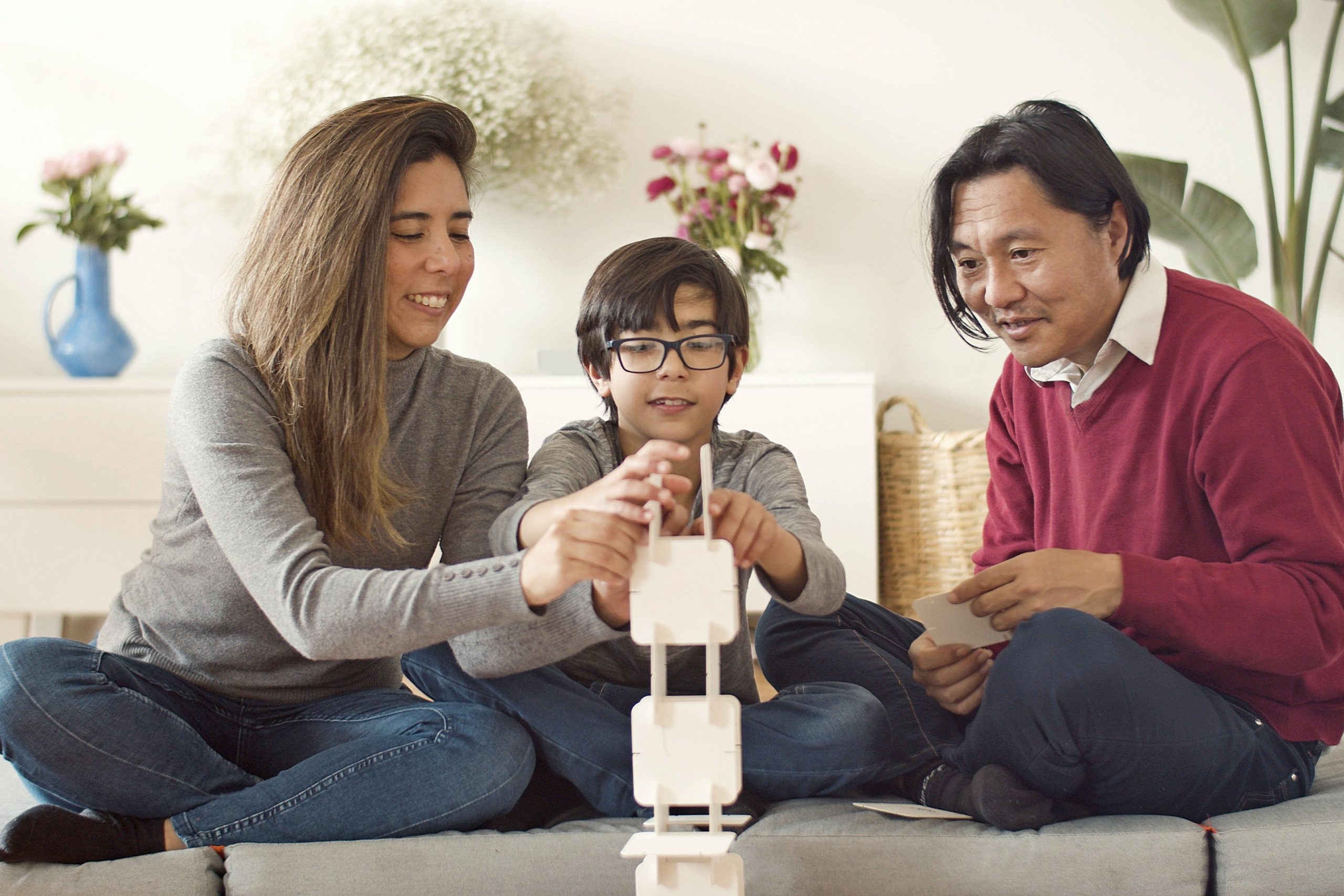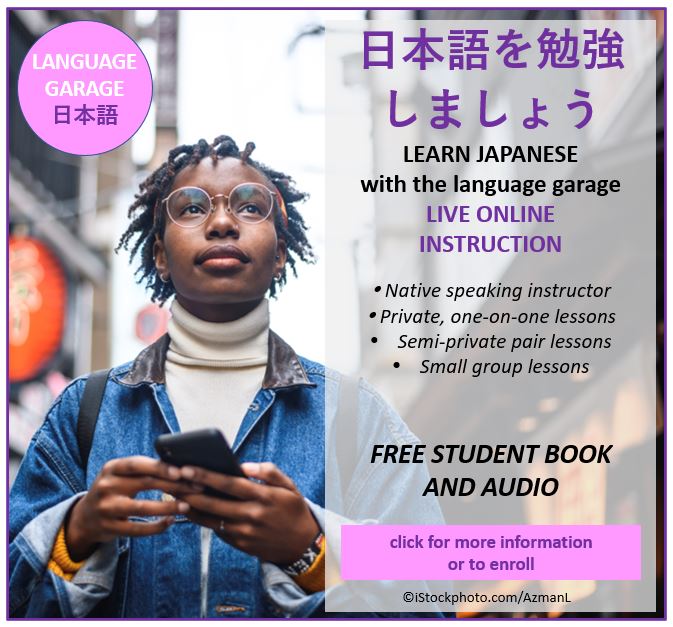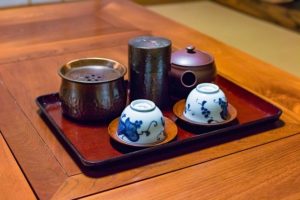Japanese Family Terms: 家族 kazoku
In this post, we’ll learn Japanese family terms so that you can build your Japanese vocabulary to talk about your 家族 kazoku family.
何人家族ですか。 Nan’nin kazoku desu ka. How many people are there in your family?
First, let’s build your Japanese vocabulary by starting with some basic Japanese family terms. Remember that in Japanese you use different family terms depending on whether you’re talking about your own family, or someone else’s. It can sound less than polite if you mix these up, so it’s important to learn both.
In the following list, the first term is what you’d use to talk about your own family, and the second is what you’d use to talk about someone else’s. 母 haha / お母さん okāsan mother (one’s own / someone else’s); 父 chichi / お父さん otōsan father ; 兄 ani / お兄さん onīsan older brother; 弟 otōto / 弟さん otōtosan younger brother; 姉 ane / お姉さん onēsan older sister; 妹 imōto / 妹さん imōtosan younger sister; 娘 musume / 娘さん、お嬢さん musumesan, ojōsan daughter; 息子 musuko / 息子さん musukosan son, 両親 ryōshin / ご両親 goryōshin parents; 子供 kodomo / お子さん okosan children.
- うちは{二人・三人 ・四人 ・五人 }家族です。
Uchi wa {futari/ san’nin/ yonin/ gonin} kazoku desu.
There are two/ three/ four/f ive people in my family. - 母は医者です。父は教師です。
Haha wa isha desu. Chichi wa kyōshi desu.
My mother is a doctor. My father is a teacher.
- 兄弟はいますか。
Kyōdai wa imasu ka.
Do you have brothers or sisters? - 姉が一人と弟が一人います。
Ane ga hitori to otōto ga hitori imasu.
I have one older sister and one younger brother. - 男兄弟が三人います。
Otoko kyōdai ga san’nin imasu.
I have three brothers. - 女兄弟が二人います。
On’na kyōdai ga futari imasu.
I have two sisters. - 私は一人っ子です。
Watashi wa hitorikko desu.
I am an only child. - お子さんはいますか。
Okosan wa imasu ka.
Do you have any children? - 息子が一人と娘が一人います。
Musuko ga hitori to musume ga hitori imasu.
We have a son and a daughter. - 家族で一番{年上・年下}は誰ですか。
Kazoku de ichiban {toshiue/ toshishita} wa dare desu ka.
Who is the oldest/ youngest in your family?
こちらは私のおばです。 Kochira wa watashi no oba desu. This is my aunt.
Now let’s build your Japanese vocabulary by looking at some extended Japanese family terms: 親戚 shinseki relatives; 祖父母 sofubo grandparents; 祖母 sobo / おばあさんobāsan grandmother (one’s own / someone else’s); 祖父 sofu / おじいさん ojīsan grandfather; 孫 mago / お孫さん omagosan grandson; 孫娘 magomusume granddaughter; おば oba / おばさん obasan aunt; おじ oji / おじさん ojisan uncle; いとこ itoko cousin; 姪、姪っ子 mei, meikko / 姪御さん meigosan niece; 甥、甥っ子 oi, oikko / 甥御さん oigosan nephew.
- 親戚にどのぐらいよく会いますか。
Shinseki ni donogurai yoku aimasu ka.
How often do you see your relatives? - おじいさんとおばあさんはどこに住んでいますか。
Ojīsan to obāsan wa doko ni sunde imasu ka.
Where do you grandparents live? - 祖母はまだ働いていますが、祖父は退職しました。
Sobo wa mada hataraite imasu ga, sofu wa taishoku shimashita.
My grandmother is still working, but my grandfather is retired. - 孫が三人います。男の子が一人と、女の子が二人です。
Mago ga san’nin imasu. Otokonoko ga hitori to, on’nanoko ga futari desu.
We have three grandchildren: one boy and two girls. - おばとおじは家の近くに住んでいます。
Oba to oji wa uchi no chikaku ni sunde imasu.
My aunt and uncle live near our house. - いとこがたくさんいます。
Itoko ga takusan imasu.
I have a lot of cousins. - 姪は大学に入りました。
Mei wa daigaku ni hairimashita.
My niece just started university. - 甥が四人います。
Oi ga yonin imasu.
I have four nephews.
Japanese Vocabulary Related to Marriage
Now let’s learn some Japanese vocabulary related to marriage. Some key vocabulary to know is: 妻、家内 tsuma, kanai / 奥さん、奥様 okusan, okusama wife (one’s own / someone else’s); 夫、主人、旦那 otto, shujin, dan’na / ご主人、旦那さん、旦那様 goshujin, dan’nasan, dan’nasama husband; 結婚する kekkonsuru to get married; 離婚する rikonsuru to get divorced; 独身 dokushin single/ unmarried. Let’s see some examples of that vocabulary.
- 結婚していますか。それとも独身ですか。
Kekkon shite imasu ka. Soretomo dokushin desu ka.
Are you married or single? - {奥さん・旦那さん}のお仕事は何ですか。
{Okusan/ Dan’nasan} no oshigoto wa nan desu ka.
What does your wife/ husband do for a living? - いつ結婚しましたか。
Itsu kekkon shimashita ka.
When did you get married? - 私たちは結婚して20年です。今週末は結婚記念日です。
Watashitachi wa kekkon shite nijūnen desu. Konshūmatsu wa kekkon kinenbi desu.
We’ve been married for twenty years. Our wedding anniversary is this weekend. - 妻は妊娠しています。あと二か月で赤ちゃんが生まれます。
Tsuma wa ninshinshite imasu. Ato nikagetsu de akachan ga umaremasu.
My wife is pregnant. We’re having a baby in two months. - 両親は離婚しています。
Ryōshin wa rikonshite imasu.
My parents are divorced.
赤ちゃんがいます。 Akachan ga imasu. We have a baby.
Now let’s look at some vocabulary related to family: 彼 kare boyfriend; 彼女 kanojo girlfriend; 赤ちゃん akachan baby; 妊娠 ninshinsuru pregnant; 養子にする yōshi ni suru to adopt; 生まれる umareru to be born;亡くなっている nakunatte iru dead; 生きている ikite iru alive; 義父 gifu / 義理のお父さん giri no otōsan stepfather; 義母 gibo / 義理のお母さん giri no okāsan stepmother; 義理の息子 giri no musuko / 義理の息子さん giri no musukosan stepson; 義理の娘 giri no musume / 義理の娘さん giri no musumesan stepdaughter.
- {彼・彼女}の名前は何ですか。
{Kare/Kanojo} no namae wa nan desu ka.
What is your boyfriend’s/girlfriend’s name? - 養子縁組をします。
Yōshi engumi o shimasu.
We’re going to adopt a child. - {息子さん・娘さん}はいつ生まれましたか。
{Musukosan/Musumesan} wa itsu umaremashita ka.
When was your son/daughter born? - 私は養子の子供です。
Watashi wa yōshi no kodomo desu.
I was adopted. - 祖母は生きていますが、祖父は亡くなりました。
Sobo wa ikite imasu ga, sofu wa nakunarimashita.
My grandmother is alive, but my grandfather is dead. - {義父・義母}とはうまくやっています。
{Giru/Gibo} towa umaku yatte imasu.
I have a good relationship with my stepfather/stepmother. - {義理の娘・義理の息子}と一緒に住んでいます。
{Giri no musume/Giri no musuko} to issho ni sunde imasu.
My stepdaughter/stepson lives with us. - 家族は犬と猫を飼っています。
Kazoku wa inu to neko o katte imasu.
My family has a dog and a cat.
Learn Japanese with the Language Garage
We hope you’ve enjoyed expanding your Japanese vocabulary by learning some key Japanese family terms. If you’d like to learn more, check out our other posts on Japanese language, culture, and more. And if you’re looking for convenient and affordable live Japanese lessons with a real teacher, check out the Language Garage. Our lessons are given online in a virtual classroom, so it doesn’t matter where you live or work – we can come to you. And we have flexible options, with a free trial so that you can decide if there’s a fit. Check us out!
Image: Kampus Production on Pexels






